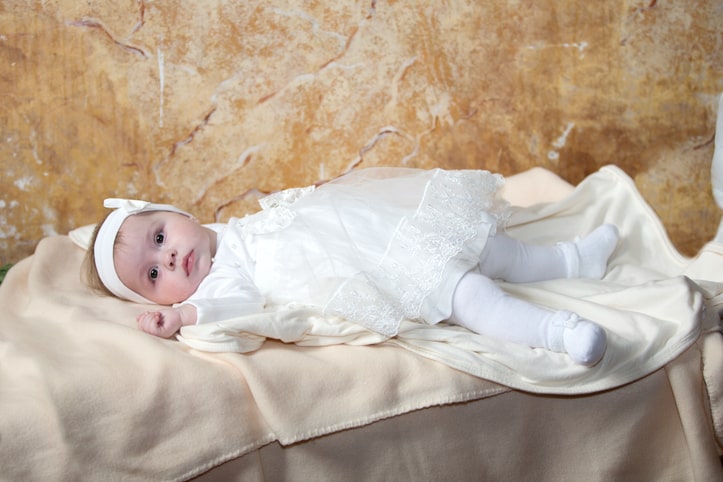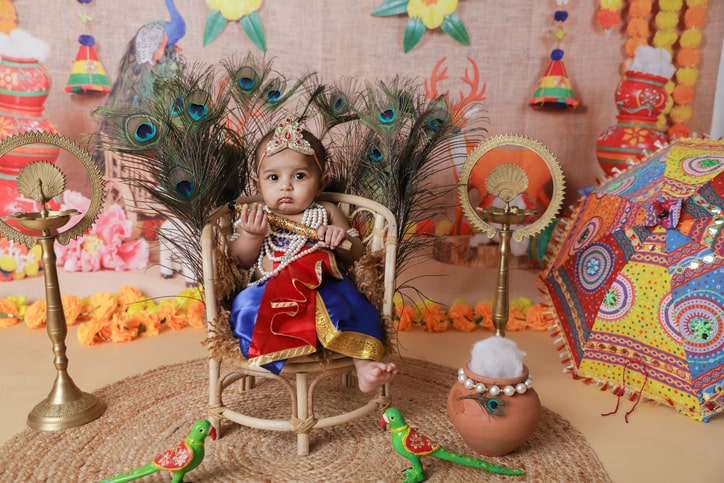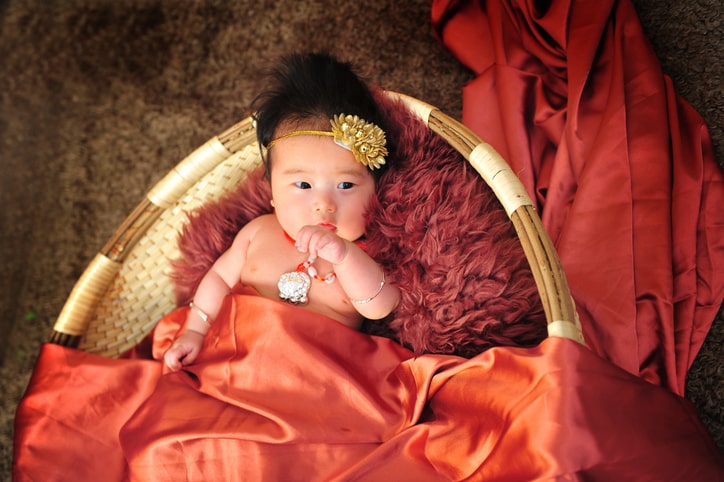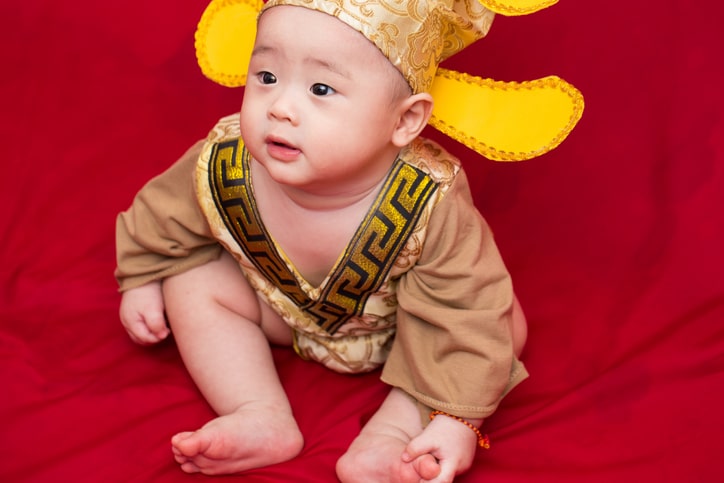Mythological names have a certain allure, a blend of the mystical and historical that captures the imagination. These names often come with stories and legends that have been passed down through the ages, adding a layer of depth and significance.
For new and expecting parents, selecting a mythological name can be a way to connect their child to a rich cultural heritage. In the following lists, we'll explore names from Greek, Roman, Egyptian, Norse, and Asian mythologies, among others, providing you with a treasure trove of options to consider.
Names Inspired by Greek Mythology

Greek mythology is a treasure chest of fascinating stories and characters. The following names not only carry beautiful meanings but also evoke the grandeur of ancient Greek culture, making them a splendid choice for any child.
- Apollo - Greek, meaning "god of the sun, music, and prophecy." Apollo was a versatile deity associated with various domains, including healing and the arts.
- Athena - Greek, meaning "goddess of wisdom and war." Athena was one of the twelve Olympian gods and was known for her intelligence and strategic prowess.
- Atlas - Greek, meaning "bearer of the heavens." Atlas was a Titan condemned to hold up the sky for eternity.
- Daphne - Greek, meaning "laurel tree." Daphne was a nymph who transformed into a laurel tree to escape Apollo's advances.
- Eros - Greek, meaning "god of love." Eros was the god of passionate love and desire, often depicted with a bow and arrows.
- Gaia - Greek, meaning "earth goddess." Gaia was the personification of Earth and one of the primordial deities.
- Hera - Greek, meaning "queen of the gods." Hera was the wife of Zeus and the goddess of marriage and family.
- Hermes - Greek, meaning "messenger of the gods." Hermes was known for his speed and his role as a guide to the underworld.
- Nyx - Greek, meaning "goddess of the night." Nyx was a powerful deity representing the night, often depicted as a shadowy figure.
- Orion - Greek, meaning "great hunter." Orion was a giant huntsman whom Zeus placed among the stars as the constellation of Orion.
- Pandora - Greek, meaning "all-gifted." Pandora was the first human woman created by the gods, known for opening a jar that released all the evils into the world.
- Persephone - Greek, meaning "bringer of destruction." Persephone was the queen of the underworld and the goddess of spring growth.
- Selene - Greek, meaning "moon goddess." Selene was the goddess who personified the moon, often depicted riding a chariot across the night sky.
- Theseus - Greek, meaning "to set." Theseus was a hero known for his bravery, particularly in defeating the Minotaur.
- Zephyr - Greek, meaning "the west wind." Zephyr was the personification of the gentle west wind, bringing spring and early summer.
Names Inspired by Roman Mythology
These Roman names are not only steeped in history but also offer a sense of strength and beauty, perfect for any new addition to the family.
- Aurora - Latin, meaning "goddess of the dawn." Aurora was the personification of the dawn, bringing light to the world each morning.
- Bellona - Latin, meaning "goddess of war." Bellona was a fierce war goddess, often depicted with a sword and shield.
- Ceres - Latin, meaning "goddess of agriculture." Ceres was the protector of grain and harvest, ensuring the fertility of the earth.
- Fauna - Latin, meaning "goddess of nature and animals." Fauna was associated with the fertility of the fields and the protection of wildlife.
- Flora - Latin, meaning "goddess of flowers and spring." Flora was associated with the blooming of flowers and the renewal of life in spring.
- Hercules - Latin, meaning "glory of Hera." Hercules was a hero renowned for his incredible strength and his twelve labors.
- Janus - Latin, meaning "god of beginnings and transitions." Janus was depicted with two faces, looking to the future and the past.
- Juno - Latin, meaning "queen of the gods." Juno was the protector of the state and the goddess of marriage and childbirth.
- Luna - Latin, meaning "moon goddess." Luna was the goddess who represented the moon, guiding travelers by night.
- Mars - Latin, meaning "god of war." Mars was one of the most important Roman gods, symbolizing military power as a way to secure peace.
- Mercury - Latin, meaning "messenger of the gods." Mercury was known for his speed and served as a guide for souls to the underworld.
- Minerva - Latin, meaning "goddess of wisdom and war." Minerva was similar to the Greek Athena, revered for her intelligence and strategic skills.
- Neptune - Latin, meaning "god of the sea." Neptune was the god of freshwater and the sea, wielding a trident and controlling the waters.
- Venus - Latin, meaning "goddess of love and beauty." Venus was equivalent to the Greek goddess Aphrodite and represented love, beauty, and fertility.
- Vulcan - Latin, meaning "god of fire and forge." Vulcan was the god of blacksmiths, craftsmen, and volcanoes.
Names Inspired by Egyptian Mythology

The 100+ Coolest Baby Names in the World
Have you ever wondered what makes a baby name a cool name? Cool names have many different qualities. Maybe it's a trending baby name of the year or maybe the name choice simply sounds cool. Does it rhyme? Or have alliteration? Read More
Egyptian mythology is rich with deities and legends that have fascinated people for millennia. These Egyptian names carry an aura of mysticism and ancient power, making them a unique and meaningful choice for any child.
- Anubis - Egyptian, meaning "god of mummification." Anubis was the protector of the dead and the overseer of mummification.
- Bastet - Egyptian, meaning "goddess of home and fertility." Bastet was depicted as a lioness or a woman with a lioness head.
- Hathor - Egyptian, meaning "goddess of love and joy." Hathor was a major deity associated with music, dance, and fertility.
- Horus - Egyptian, meaning "sky god." Horus was depicted as a falcon and was associated with kingship and the sky.
- Isis - Egyptian, meaning "goddess of magic and motherhood." Isis was a major goddess known for her magical abilities and her role as the mother of Horus.
- Khonsu - Egyptian, meaning "god of the moon." Khonsu was associated with the moon and time, often depicted as a young man with a sidelock of youth.
- Ma'at - Egyptian, meaning "goddess of truth and justice." Ma'at represented truth, balance, and cosmic order.
- Nephthys - Egyptian, meaning "goddess of mourning." Nephthys was associated with death, mourning, and protection.
- Nut - Egyptian, meaning "sky goddess." Nut was the personification of the sky, arching over the earth and protecting it.
- Osiris - Egyptian, meaning "god of the afterlife." Osiris was the god of the dead and resurrection, ruling over the afterlife.
- Ptah - Egyptian, meaning "god of craftsmanship." Ptah was the creator god and patron of artisans and craftsmen.
- Ra - Egyptian, meaning "sun god." Ra was the chief deity, symbolizing the sun and creation.
- Sekhmet - Egyptian, meaning "goddess of war and healing." Sekhmet was depicted as a lioness and was known for both her destructive and healing powers.
- Sobek - Egyptian, meaning "god of the Nile." Sobek was depicted as a crocodile and was associated with the Nile and fertility.
- Thoth - Egyptian, meaning "god of wisdom and writing." Thoth was associated with knowledge, writing, and the moon.
Names Inspired by Norse Mythology
Norse mythology is filled with powerful gods, goddesses, and legendary heroes. These Norse names evoke the rugged landscapes and fierce spirits of the Viking age, offering a strong and evocative choice for any child.
- Baldur - Norse, meaning "god of light and purity." Baldur was loved by all the gods for his beauty and purity.
- Eir - Norse, meaning "goddess of healing." Eir was a minor goddess associated with medical skill and healing.
- Fenrir - Norse, meaning "giant wolf." Fenrir was a monstrous wolf prophesied to bring about the end of the world during Ragnarok.
- Frigg - Norse, meaning "goddess of marriage." Frigg was Odin's wife and the goddess of marriage and motherhood.
- Freya - Norse, meaning "goddess of love and beauty." Freya was associated with love, beauty, and fertility.
- Hel - Norse, meaning "goddess of the underworld." Hel ruled over the realm of the dead, known as Helheim.
- Hodr - Norse, meaning "god of darkness." Hodr was a blind god associated with night and darkness.
- Idun - Norse, meaning "goddess of youth." Idun was the keeper of the golden apples that granted the gods eternal youth.
- Loki - Norse, meaning "trickster god." Loki was known for his cunning and his role as a shapeshifter and trickster.
- Njord - Norse, meaning "god of the sea." Njord was associated with the sea, wind, and fishing.
- Odin - Norse, meaning "god of wisdom and war." Odin was the chief god, known for his quest for knowledge and his role as a war deity.
- Sif - Norse, meaning "goddess of fertility." Sif was known for her golden hair and her association with fertility and the earth.
- Skadi - Norse, meaning "goddess of winter." Skadi was a giantess associated with winter and hunting.
- Thor - Norse, meaning "god of thunder." Thor was a major deity known for his strength and his hammer, Mjölnir.
- Tyr - Norse, meaning "god of war." Tyr was known for his bravery and his role as a war god.
Names Inspired by Native American Mythology

Native American mythology is rich with tales of creation, nature, and legendary figures. These Native American names reflect the deep connection of indigenous cultures with nature, spirituality, and the world around them, offering meaningful options for any child.
- Atahensic - Iroquois, meaning "sky woman." Atahensic is a central figure in the Iroquois creation story, who fell from the sky and helped create the earth.
- Chiye-Tanka - Sioux, meaning "big voice." Chiye-Tanka is the ancient thunderbird spirit known for its powerful and thunderous presence.
- Coyote - Various tribes, known as the "trickster god." Coyote is a figure found in many Native American myths, known for his mischievous and cunning nature.
- Gitchi Manitou - Algonquin, meaning "great spirit." Gitchi Manitou is considered the creator of all things.
- Hiawatha - Iroquois, meaning "he makes rivers." Hiawatha was a legendary leader and co-founder of the Iroquois Confederacy.
- Iktomi - Lakota, meaning "spider trickster." Iktomi is a spider deity known for his tricks and wisdom.
- Kokopelli - Hopi, meaning "fertility god." Kokopelli is depicted as a flute player and is associated with fertility, music, and joy.
- Miwok - Miwok, referring to the "people" and their traditions. The Miwok people have rich storytelling traditions filled with mythical figures.
- Nanook - Inuit, meaning "polar bear god." Nanook was revered as a powerful spirit that governed the polar bears.
- Sedna - Inuit, meaning "goddess of the sea." Sedna is a sea goddess who controls the marine animals.
- Takwus - Salish, meaning "god of the river." Takwus was a deity associated with rivers and their life-giving properties.
- Tawa - Hopi, meaning "sun god." Tawa is the deity responsible for creating the first people.
- Wakan Tanka - Lakota, meaning "great spirit." Wakan Tanka is the supreme deity, encompassing all that is sacred.
- Winona - Dakota, meaning "firstborn daughter." Winona is often associated with noble and respected women in myth.
- Yaya - Arawak, meaning "spirit of nature." Yaya was believed to be a spiritual force present in nature.
Names Inspired by Mesopotamian Mythology
Mesopotamian mythology, one of the oldest known mythology systems, encompasses gods, goddesses, and mythical figures from ancient civilizations like the Sumerians, Akkadians, Babylonians, and Assyrians. The following names embody the rich heritage of some of the earliest civilizations, offering powerful and historical options for any child.
- Anu - Sumerian, meaning "heavenly father." Anu was the sky god and the father of gods.
- Ashur - Assyrian, representing the "national god of Assyria." Ashur was the god of war and the weather.
- Dumuzi - Sumerian, meaning "faithful son." Dumuzi was a god of shepherds and vegetation.
- Enki - Sumerian, meaning "lord of the earth." Enki was the god of wisdom, water, and creation.
- Enlil - Sumerian, meaning "lord of the air." Enlil was a chief deity responsible for wind, air, and storms.
- Ereshkigal - Sumerian, symbolic of the "queen of the underworld." Ereshkigal ruled the realm of the dead.
- Inanna - Sumerian, meaning "queen of heaven." Inanna was the goddess of love, beauty, sex, and political power.
- Ishtar - Akkadian, meaning "goddess of love." Ishtar was the goddess of love, beauty, sex, and war.
- Marduk - Babylonian, meaning "solar calf." Marduk was a major god who became the head of the Babylonian pantheon.
- Nanshe - Sumerian, associated with the "goddess of social justice." Nanshe was a goddess of fertility, water, and prophecy.
- Nergal - Akkadian, meaning "lord of the great dwelling." Nergal was a god of war, death, and the underworld.
- Ninhursag - Sumerian, meaning "lady of the mountains." Ninhursag was a mother goddess associated with the earth and fertility.
- Tiamat - Sumerian, representing the "goddess of the salt sea." Tiamat was a primordial sea goddess and mother of dragons.
- Utu - Sumerian, meaning "god of the sun." Utu was responsible for justice and fairness.
- Zababa - Akkadian, symbolizing the "god of war." Zababa was a warrior god associated with combat and victory.
Names Inspired by South American Mythology

South American mythology is filled with fascinating deities and legendary figures from various Indigenous cultures, including Inca, Mapuche, and Guarani traditions. These names reflect the incredible diversity and depth of South American mythology, offering distinctive and storied options for any child.
- Apu - Inca, representing the "mountain spirits." Apus are deities believed to dwell in sacred mountains.
- Catequil - Inca, referring to the "god of thunder and lightning." Catequil was invoked during thunderstorms.
- Ekeko - Aymara, known as the "god of abundance." Ekeko symbolizes prosperity and well-being.
- Huallallo Carhuancho - Inca, meaning "fire god." Huallallo Carhuancho was a formidable fire deity.
- Inti - Inca, meaning "sun." Inti was the ancient Inca sun god.
- Ka-Ata-Killa - Inca, meaning "moon goddess." Another moon deity revered alongside Mama Quilla.
- Kon - Inca, meaning "god of rain and wind." Kon was a weather deity controlling rain and wind.
- Llunaya - Mapuche, associated with the "moon goddess." Llunaya was believed to control the movements of the moon.
- Mama Quilla - Inca, meaning "moon mother." Mama Quilla was the goddess of the moon, marriage, and festivals.
- Pachamama - Quechua, meaning "mother earth." Pachamama is a goddess revered for her nurturing qualities.
- Supay - Quechua, associated with the "god of death." Supay was the ruler of the underworld.
- Tupan - Guarani, signifying the "god of thunder." Tupan is a powerful deity ruling over weather and storms.
- Viracocha - Inca, referring to the "creator god." Viracocha is considered the creator of all things.
- Yacana - Inca, representing the "guardian of the Milky Way." Yacana was linked with a llama constellation guiding people.
- Zaramama - Inca, meaning "grain mother." Zaramama was the goddess of grains and corn.
Names Inspired by Hindu Mythology
Hindu mythology is replete with rich narratives and divine figures, drawing from ancient scriptures like the Vedas, Upanishads, Mahabharata, and Ramayana. These names trace back to ancient roots, embedding the deep cultural and spiritual traditions of Hindu mythology, providing meaningful and revered options for any child.
- Agni - Sanskrit, meaning "fire." Agni is the god of fire and the acceptor of sacrifices in Hindu rituals.
- Brahma - Sanskrit, meaning "the creator." Brahma is one of the principal deities, responsible for the creation of the universe.
- Durga - Sanskrit, meaning "the invincible." Durga is a warrior goddess, representing the motherly protection of the universe.
- Ganesha - Sanskrit, meaning "lord of the multitudes." Ganesha is the elephant-headed god of beginnings, wisdom, and remover of obstacles.
- Hanuman - Sanskrit, meaning "the energy of the wind." Hanuman is the divine monkey god, known for his devotion to Rama and immense strength.
- Indra - Sanskrit, meaning "king of gods." Indra is the god of rain and thunderstorms and the ruler of the heavens.
- Kartikeya - Sanskrit, meaning "god of war." Kartikeya is the son of Shiva and Parvati, known for his martial prowess.
- Krishna - Sanskrit, meaning "the dark one." Krishna is an incarnation of Vishnu, known for his teachings in the Bhagavad Gita and his role as a divine statesman.
- Lakshmi - Sanskrit, meaning "goddess of wealth." Lakshmi is the consort of Vishnu and the goddess of fortune and prosperity.
- Parvati - Sanskrit, meaning "daughter of the mountains." Parvati is the consort of Shiva and the mother goddess in Hindu mythology.
- Rama - Sanskrit, meaning "charming." Rama is an incarnation of Vishnu and the protagonist of the Ramayana, celebrated for his virtue and adherence to dharma.
- Saraswati - Sanskrit, meaning "goddess of knowledge." Saraswati is the consort of Brahma and the goddess of learning, music, and arts.
- Shiva - Sanskrit, meaning "the auspicious one." Shiva is one of the principal deities, known as the destroyer and transformer in the Hindu trinity.
- Sita - Sanskrit, meaning "furrow." Sita is the consort of Rama, known for her dedication, self-sacrifice, and purity.
- Vishnu - Sanskrit, meaning "the preserver." Vishnu is one of the principal deities, responsible for maintaining the order of the universe.
Names Inspired by Chinese Mythology

Chinese mythology is a rich tapestry of folklore, legends, and ancient religious beliefs that have been passed down through generations. These names reflect the deep and fascinating nature of Chinese mythology, providing a wealth of traditional and meaningful options for any child.
- Baihu - Chinese, meaning "white tiger." Baihu is one of the four symbols of Chinese constellations, representing the west and autumn.
- Ba Xian - Chinese, meaning "eight immortals." Ba Xian are a group of legendary immortals with unique powers and attributes.
- Chang'e - Chinese, meaning "moon goddess." Chang'e is a central figure in the Chinese Mid-Autumn Festival.
- Da Yu - Chinese, meaning "great Yu." Da Yu is a legendary ruler known for his efforts in controlling the great flood and founding the Xia dynasty.
- Di Jun - Chinese, meaning "emperor of the eastern heaven." Di Jun is an ancient deity associated with the east and agriculture.
- Fuxi - Chinese, meaning "creator god." Fuxi, along with Nuwa, is one of the mythological ancestors of the Chinese people.
- Gonggong - Chinese, meaning "water god." Gonggong is a rebellious deity associated with floods and water chaos.
- Guanyin - Chinese, meaning "goddess of mercy." Guanyin is a beloved deity of compassion and mercy.
- Houyi - Chinese, meaning "divine archer." Houyi is famed for shooting down nine of the ten suns to save the earth.
- Lei Gong - Chinese, meaning "god of thunder." Lei Gong is the deity who punishes evildoers with thunderbolts.
- Nuwa - Chinese, meaning "mother goddess." Nuwa is credited with creating humanity and repairing the sky.
- Shennong - Chinese, meaning "divine farmer." Shennong is the god of agriculture and herbal medicine.
- Yu Di - Chinese, meaning "jade emperor." Yu Di is the supreme deity who governs all deities in Chinese mythology.
- Zhong Kui - Chinese, meaning "demon queller." Zhong Kui is a deity who exorcises ghosts and evils.
- Zhu Rong - Chinese, meaning "god of fire." Zhu Rong is the divine ruler of fire and volcanic activity.
Names Inspired by Japanese Mythology
Japanese mythology is a rich blend of Shinto and Buddhist traditions, featuring a plethora of gods, goddesses, and legendary figures. These names encapsulate the profound and fascinating nature of Japanese mythology, offering a variety of meaningful and culturally rich options for any child.
- Amaterasu - Japanese, meaning "shining in heaven." Amaterasu is the sun goddess and one of the principal deities in Shinto belief.
- Benzaiten - Japanese, meaning "goddess of everything that flows." Benzaiten is the goddess of music, wisdom, and water.
- Fujin - Japanese, meaning "wind god." Fujin is the deity of wind, frequently portrayed carrying a bag of winds.
- Hachiman - Japanese, meaning "god of war." Hachiman is revered as the protector of warriors and Japanese people.
- Inari - Japanese, known as the "god of rice and fertility." Inari is a popular deity associated with prosperity and agriculture.
- Izanagi - Japanese, meaning "he who invites." Izanagi is the primordial god and partner of Izanami, involved in the creation of Japan and its deities.
- Izanami - Japanese, meaning "she who invites." Izanami is a primordial goddess who, alongside Izanagi, created the islands of Japan.
- Kaguya - Japanese, known as the "moon princess." Kaguya is a central character in "The Tale of the Bamboo Cutter," a famous Japanese legend.
- Kannon - Japanese, meaning "goddess of mercy." Kannon is a beloved figure of compassion in both Shinto and Buddhist traditions.
- Omoikane - Japanese, meaning "deity of wisdom and intelligence." Omoikane is known for his scholarly knowledge and ability to think deeply.
- Raijin - Japanese, meaning "thunder god." Raijin is the god of thunder and lightning, often depicted with drums.
- Shuten Doji - Japanese, known as the "drunken demon." Shuten Doji is a famous oni (demon) known for his legendary strength and fearsome nature.
- Susanoo - Japanese, meaning "swift impetuous male." Susanoo is the storm god and brother of Amaterasu.
- Tsukuyomi - Japanese, meaning "moon reading." Tsukuyomi is the moon god and sibling of Amaterasu and Susanoo.
- Yamato - Japanese, meaning "great harmony." Yamato is the legendary founder of Japan, where the term "Yamato" signifies ancient Japan.
Names Inspired by Australian Mythology

Australian Aboriginal mythology encompasses a wide array of stories, deities, and ancestral beings intertwined with the natural world. These names reflect the deep spiritual connection and rich cultural heritage embedded in Australian mythology, offering unique and meaningful naming options.
- Baiame - Aboriginal Australian, meaning "Sky Father." Known as the "Sky Father" and creator god, often considered the supreme deity.
- Baiyami - Aboriginal Australian, meaning "all-father." Another version of Baiame, revered as an all-father figure.
- Bunjil - Aboriginal Australian, meaning "Great Eaglehawk." The Great Eaglehawk and creator spirit.
- Daramulum - Aboriginal Australian, meaning "son of Baiame." A god of the sky and weather.
- Dirawong - Aboriginal Australian, meaning "serpent deity." Protected humans from the Rainbow Serpent.
- Gnowee - Aboriginal Australian, meaning "sun goddess." A sun goddess who searches for her lost child, bringing light to the world.
- Julunggul - Aboriginal Australian, meaning "Rainbow Serpent." A creator and fertility deity.
- Mimis - Aboriginal Australian, meaning "ancestral spirits." These spirits are credited with teaching humans art and hunting.
- Ngalyod - Aboriginal Australian, meaning "Rainbow Serpent." Represents life and creation.
- Tiddalik - Aboriginal Australian, meaning "the giant frog." Famous for drinking all the water in the world.
- Ulanji - Aboriginal Australian, meaning "ancestor spirit." Known for his transformational powers.
- Wandjina - Aboriginal Australian, meaning "rain and cloud spirits." Often depicted in rock art.
- Wuriupranili - Aboriginal Australian, meaning "goddess of fire." Carries a torch across the sky.
- Yhi - Aboriginal Australian, meaning "sun goddess." The sun goddess who brought life to the earth.
- Yurlungur - Aboriginal Australian, meaning "Rainbow Serpent." Associated with fertility and creation.
Names Inspired by Celtic Mythology
Celtic mythology is filled with tales of heroism, magic, and gods and goddesses that reflect the rich cultural heritage of the Celtic people. These names draw from the rich tapestry of Celtic mythology, providing unique and meaningful options for those seeking to connect with ancient traditions.
- Aengus - Irish, meaning "god of love." Aengus is associated with youth, love, and poetic inspiration.
- Aine - Irish, meaning "radiance." Aine is the goddess of love, summer, and sovereignty, associated with the sun and fertility.
- Arawn - Welsh, meaning "king of the otherworld." Arawn is a god of revenge, war, and the underworld.
- Brigid - Irish, meaning "exalted one." Brigid is the goddess of fire, poetry, and wisdom.
- Cernunnos - Celtic, meaning "horned one." Cernunnos is the god of animals, fertility, and the underworld.
- Dagda - Irish, meaning "the good god." Dagda is the father god, associated with fertility, agriculture, and strength.
- Danu - Irish, meaning "mother." Danu is associated with water, fertility, and wisdom.
- Epona - Gaulish, meaning "horse goddess." Epona is the goddess protector of horses, donkeys, and mules.
- Lugh - Irish, meaning "shining one." Lugh is the god of craftsmanship, oaths, and kingship.
- Manannán - Irish, meaning "god of the sea." Manannán is also associated with weather and magic.
- Morrigan - Irish, meaning "great queen." Morrigan is the goddess of fate, battle, and sovereignty.
- Niamh - Irish, meaning "brightness." Niamh is a figure in love tales, connected to the land of eternal youth.
- Nuada - Irish, meaning "cloud maker." Nuada is the god of healing and leadership.
- Rhiannon - Welsh, meaning "great queen." Rhiannon is a goddess of fertility, the moon, and the underworld, known for her beautiful white horse.
- Tailtiu - Irish, meaning "earth goddess." Tailtiu is celebrated for her connection to agriculture and land.
Names Inspired by Pacific Islander Mythology

Pacific Islander mythology is rich with stories that reflect the unique cultural landscapes of the islands in the Pacific Ocean. These myths and legends offer names that are imbued with natural beauty, heroism, and deep cultural meanings.
- Hina - Polynesian, meaning "moon goddess." A prominent figure in many Hawaiian and Tahitian legends.
- Hinemoana - Māori, meaning "lady of the ocean." A goddess of the seas and marine life.
- Haumea - Hawaiian, meaning "goddess of childbirth and fertility." An ancestor deity in Hawaiian mythology.
- Ku - Hawaiian, meaning "god of war." Also associated with fishing, farming, and prosperity.
- Laka - Hawaiian, meaning "goddess of hula and fertility." Revered as the deity of dance, chants, and fertility.
- Moana - Polynesian, meaning "ocean" or "sea." The vast ocean, personified and central to many Pacific cultures.
- Moenau - Tahitian, meaning "goddess of the deep sea." Protectress of the ocean and marine life.
- Maui - Polynesian, meaning "god of fire." A trickster hero famous for his exploits across many Pacific cultures.
- Pele - Hawaiian, meaning "goddess of volcanoes." The fiery deity who creates and destroys the land.
- Rangi - Māori, meaning "sky father." Together with Papatuanuku, the Earth mother, they parented many other deities.
- Rongo - Māori, meaning "god of peace and agriculture." Known as the deity of cultivated plants and peace.
- Ta'aroa - Tahitian, meaning "creator god." Known as the supreme god and creator of all things in Tahitian mythology.
- Tane - Māori, meaning "god of forests and birds." A deity responsible for creating humans and separating the Earth and sky.
- Tangaroa - Polynesian, meaning "god of the sea." One of the greatest deities across various Polynesian cultures, governing the oceans and marine creatures.
- Tawhiri - Māori, meaning "god of storms and weather." Responsible for the winds, storms, and rain.
Names Inspired by Eastern European Mythology
Eastern European mythology is rich with deities, spirits, and heroic figures that reflect the diverse cultures and histories of the region. These names often carry deep meanings, linked to natural elements, virtues, and legendary tales.
- Baba Yaga - Slavic, meaning "witch" or "hag." A powerful and ambiguous figure known for her wisdom, magic, and the ability to either help or hinder those who seek her out.
- Chors - Slavic, meaning "god of the moon." Associated with the night, harvest, and sometimes seen as a rival to Dazhbog.
- Dazhbog - Slavic, meaning "giving god." An important deity associated with the sun, prosperity, and fortune.
- Jarilo - Slavic, meaning "god of spring and fertility." A deity who represents the renewal of the earth and agricultural abundance.
- Lada - Slavic, meaning "goddess of love and beauty." Revered as the embodiment of youth, spring, and fertility.
- Mokosh - Slavic, meaning "goddess of fertility and earth." Protector of women, overseeing weaving, spinning, and childbirth.
- Morana - Slavic, meaning "goddess of death." Associated with winter, rebirth, and the cycle of life and death.
- Perun - Slavic, meaning "god of thunder." Chief god of the pantheon, associated with war, sky, and thunder.
- Rod - Slavic, meaning "god of family and ancestors." A primordial god associated with creation and the protector of family and kin.
- Rusalka - Slavic, meaning "water nymph." Spirits associated with water bodies, often linked to fertility and sometimes to siren-like qualities.
- Svarog - Slavic, meaning "blacksmith god." God of fire, blacksmithing, and craftsmanship, often considered a creator deity.
- Triglav - Slavic, meaning "three-headed god." A deity representing the underworld, earth, and sky, embodying a triad of divine spheres.
- Veles - Slavic, meaning "god of the underworld." Patron of cattle, commerce, and the sometimes trickster counterpart to Perun.
- Zmey Gorynych - Slavic, meaning "dragon." A fearsome dragon often featured in folklore battles against heroic knights.
- Zorya - Slavic, meaning "goddess of the dawn." The two Zoryas, Utrennyaya and Vechernyaya, watch over the morning and evening stars.
Names Inspired by Christian Mythology

Christian mythology, deeply rooted in the Bible and related religious texts, features a wealth of meaningful names. These names not only hold significant spiritual and religious connotations but also carry a sense of history and reverence in Christian traditions.
- Daniel - Hebrew, meaning "God is my judge." A prophet known for his unwavering faith and his survival in the lion's den.
- Ezekiel - Hebrew, meaning "God strengthens." A prophet known for his visions and prophecies in the Old Testament.
- Gabriel - Hebrew, meaning "God is my strength." An archangel who serves as a messenger of God, famously announcing the birth of Jesus to Mary.
- John - Hebrew, meaning "God is gracious." Refers to John the Baptist, the forerunner of Jesus, and John the Apostle, one of Jesus's closest disciples.
- Joseph - Hebrew, meaning "God will add." The earthly father of Jesus and the husband of Mary, known for his righteousness and faith.
- Magdalene - Hebrew, meaning "of Magdala." Refers to Mary Magdalene, a devoted follower of Jesus who witnessed his resurrection.
- Mary - Hebrew, meaning "bitter" or "beloved." The mother of Jesus, venerated for her purity and obedience to God.
- Michael - Hebrew, meaning "Who is like God." An archangel and the leader of heaven's armies in the battle against the forces of evil.
- Paul - Latin, meaning "small" or "humble." An apostle who played a significant role in spreading Christianity and writing many of the New Testament epistles.
- Peter - Greek, meaning "rock." One of Jesus's apostles, known for being the rock upon which the Christian Church was built.
- Raphael - Hebrew, meaning "God heals." An archangel known for healing and protection.
- Seraphim - Hebrew, meaning "burning ones." Refers to the high-ranking angels who worship God continuously.
- Thomas - Aramaic, meaning "twin." An apostle known for doubting Jesus's resurrection until he saw and touched Jesus's wounds.
- Uriel - Hebrew, meaning "God is my light." An archangel whose name means "God is my light."
- Zacharias - Hebrew, meaning "The Lord has remembered." A priest and the father of John the Baptist, known for his encounter with the angel Gabriel.
Names Inspired by Jewish Mythology
Jewish mythology, with its rich traditions and stories rooted in the Torah, Talmud, and other sacred Jewish texts, offers a wealth of meaningful names. These names not only carry deep religious significance but also reflect the profound heritage and history embedded in Jewish mythology.
- Aaron - Hebrew, meaning "high mountain" or "exalted." The brother of Moses and the first high priest of Israel.
- Abraham - Hebrew, meaning "father of many." The patriarch of the Jewish faith, famous for his unwavering faith in God.
- Adam - Hebrew, meaning "man" or "earth." The first human created by God, symbolizing mankind.
- David - Hebrew, meaning "beloved." The second king of Israel, known for his bravery and musical talent.
- Deborah - Hebrew, meaning "bee." A prophetess and judge who led Israel to victory.
- Elijah - Hebrew, meaning "My God is Yahweh." A prophet known for his miracles and ascension to heaven in a chariot of fire.
- Esther - Persian, meaning "star." A queen who saved the Jewish people from destruction in Persia.
- Eve - Hebrew, meaning "life" or "living." The first woman created by God, known as the mother of all living.
- Isaac - Hebrew, meaning "laughter." The son of Abraham and Sarah, and the father of Jacob and Esau.
- Jacob - Hebrew, meaning "supplanter" or "holder of the heel." The patriarch who fathered the twelve tribes of Israel, later named Israel.
- Moses - Egyptian, meaning "drawn out of the water." The prophet who led the Israelites out of Egypt and received the Ten Commandments.
- Rachel - Hebrew, meaning "ewe." The beloved wife of Jacob and mother of Joseph and Benjamin.
- Samson - Hebrew, meaning "sun." A judge known for his supernatural strength and his exploits against the Philistines.
- Sarah - Hebrew, meaning "princess." The wife of Abraham and the matriarch of the Jewish people.
- Solomon - Hebrew, meaning "peace." The son of David, famed for his wisdom and building the First Temple in Jerusalem.
Names Inspired by Islamic Mythology

Islamic mythology, rooted in the Quran, Hadith, and other Islamic texts, features a collection of names that hold profound spiritual and cultural significance. These names reflect the rich heritage of Islamic traditions and often carry deep meanings that embody virtues, qualities, and historical narratives.
- Abbas - Arabic, meaning "lion." The uncle of Prophet Muhammad and a notable figure in early Islamic history.
- Abdullah - Arabic, meaning "servant of God." The name of Prophet Muhammad’s father, and a common name emphasizing devotion to God.
- Aisha - Arabic, meaning "alive" or "living." One of Prophet Muhammad’s wives, noted for her intelligence and scholarship.
- Ali - Arabic, meaning "exalted" or "noble." The cousin and son-in-law of Prophet Muhammad, known for his wisdom and bravery.
- Bilal - Arabic, meaning "moistening." A companion of Prophet Muhammad and the first muezzin in Islam, renowned for his beautiful voice.
- Fatimah - Arabic, meaning "one who weans." The daughter of Prophet Muhammad, revered for her purity and piety.
- Hamza - Arabic, meaning "steadfast" or "strong." The uncle of Prophet Muhammad, celebrated for his bravery and sacrifice in battle.
- Hassan - Arabic, meaning "handsome" or "good." The grandson of Prophet Muhammad and the first son of Ali and Fatimah.
- Husayn - Arabic, meaning "little handsome one." The grandson of Prophet Muhammad and the second son of Ali and Fatimah, martyred at the Battle of Karbala.
- Khadija - Arabic, meaning "premature child." The first wife of Prophet Muhammad, known for her unwavering support and belief in him.
- Maryam - Arabic, meaning "bitter" or "beloved." The mother of Prophet Isa (Jesus) in Islamic tradition, revered for her devotion and purity.
- Muhammad - Arabic, meaning "praiseworthy." The prophet and founder of Islam, considered the last prophet sent by God.
- Safiyyah - Arabic, meaning "pure" or "sincere." One of Prophet Muhammad’s wives, recognized for her piety.
- Umar - Arabic, meaning "flourishing" or "prospering." The second caliph of Islam, known for his just rule and expansion of the Islamic state.
- Zaynab - Arabic, meaning "fragrant flower." The daughter of Ali and Fatimah, known for her strength and eloquence.
Practical Considerations for Mythical Names
When choosing a mythological name, it's important to ensure it fits well with your child's personality and your family's values. Here are some practical tips:
Consider Pronunciation and Spelling
Mythological names can sometimes be challenging to pronounce or spell. Choose a name that is easy for your child to learn and for others to say correctly.
Think About Societal Perception
While mythological names are unique and meaningful, consider how they may be perceived in society. Make sure the name will be a source of pride and not a burden for your child.
Make Sure It Resonates
Ultimately, the name you choose should feel right for your family. Take your time to explore different options and select a name that resonates with you.



